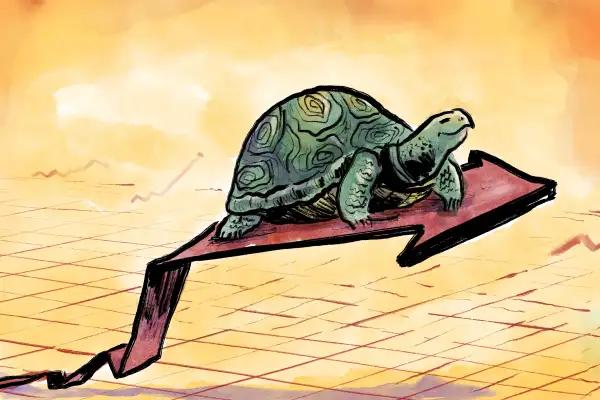Study Shows People Who Work Hard May Be Bad Investors
Money is not a client of any investment adviser featured on this page. The information provided on this page is for educational purposes only and is not intended as investment advice. Money does not offer advisory services.

Giving it your all at work? You might be making more conservative investing decisions — and losing out on valuable retirement income — as a result.
A new study published in the Journal of Consumer Psychology finds that people who exert more effort to earn their money are more cautious when it comes to their investments.
“Consumers feel greater psychological ownership over their earnings when they work hard for them,” lead author Christopher Bechler, a marketing professor at Notre Dame, explains in a blog post. That “makes them value these earnings more and be more averse to losing them,” he says. “So, they choose less risky investments and invest less.”
The study’s authors, who also include Samina Lutfeali, Szu-chi Huang and Joshua Morris of Stanford University, say that this finding runs contrary to popular wisdom. Most people would assume that hard workers tend to have higher incomes and a higher level of financial literacy and are more comfort with financial risk. Instead, the researchers found the opposite was true.
To gather their data, the researchers had their participants complete a series of tasks requiring a varying amount of effort — like transcribing Dutch poetry or repeatedly pressing a key on their keyboard — for money. Afterwards, they were given a variety of options to invest their money and they could also opt out of investing. In the end, participants who had to work harder for their earnings (i.e., they had to transcribe more lines or push the key more) were more conservative with their investment choices.
How to encourage hard workers to invest more
Theoretically, these findings illustrate the risk that consumers’ hard work — especially in the aftermath of the COVID-19 pandemic, amid high inflation and stagnant wages — could undermine their own financial futures, the researchers conclude. They also help explain why consumers don’t accumulate as much wealth as they could, Bechler says, “especially when times are hard.”
Experts agree that investments in retirement accounts like 401(k)s are among the best ways to build wealth over the long term, and Bechler says the study’s results point to the importance of tools that make investments in those sorts of plans automatic.
Many employers now automatically enroll their employees into retirement plans, for instance, often with a default contribution of around 3% or 4%. (And starting in 2025, that automatic enrollment will be mandatory for many employers.) Big brokerages like Fidelity and Vanguard also offer automatic programs that take all the guesswork out of investing money for retirement or other goals.
The researchers say tools like these can prevent workers’ attachment to their hard work from getting in the way of the responsible risk-taking that’s necessary to build wealth over the long term.
More from Money:
The S&P 500 Is in a Bull Market. Will It Last?
Why the Debt Ceiling Deal Could Actually Hurt Stocks
The Stock Market's 'Strong Start' to 2023 Could Signal Good News for the Rest of the Year

